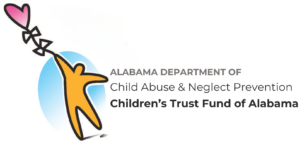Find Help
If your loved one starts behaving differently—such as acting withdrawn, frequently tired or depressed, or hostile—it could be a sign he or she is struggling with a Substance Use Disorder (SUD).
Friends and family may overlook such signs, believing them to be temporary (due to stress or puberty) or avoid confronting the changes for fear of offending or further distancing their loved one.
Other signs include:
- Disinterest in activities that were previously enjoyable
- Change in daily routine
- Changes in mood
- Change in weight or appearance
- Change in eating or sleeping habits
- Decline in performance at work or school
- Change in peer group
- Secrecy regarding the phone
- Tendency to disappear for hours at a time
- Deteriorating relationships
- Inability to be present when in conversation
Because SUD is a progressive disease, intervening early greatly increases the likelihood that the person will recover. Take warning signs seriously and try having an honest conversation with your loved one. You can offer to help them get an assessment—the critical first step to getting treatment.
If your child is struggling, set up a doctor’s appointment with a provider who can screen for SUD and other mental health conditions using standard assessment tools, and refer your child to an appropriate specialty treatment provider if needed.
Not all people who are struggling with a SUD enter treatment willingly. Because this is a particularly sensitive and scary juncture for the person who is struggling, try to be a pillar of support and patience while prioritizing getting them in to see a doctor with experience treating SUDs.
Many factors affect a person’s risk for developing a SUD, but some of the most important factors include genetics, family history, and exposure to substances. Realistic assessments of the risk factors with a peer or family member can be empowering.
Although nearly half of Americans have a family member or close friend who has had a Substance Use Disorder (SUD), most people don’t speak openly about these disorders due to a lack of understanding about the illness and the stigma that unfortunately remains associated with it. This reluctance to speak plainly instills the idea that the topic is off-limits, especially when an individual is struggling. This reinforces the shame and isolation so common in the experience of SUD.
Understanding the role of genetics in SUD enables both adults and adolescents to take critical steps to boost protective factors and reduce other risk factors, for example by delaying initiation of substance use. Parents should make sure adolescents know that if they are worried about their own substance use or that of a friend, they should ask for help without fear of punishment.
The earlier a person seeks help, the better their chances for a full recovery. Many individuals struggling with SUD don’t know how to assess their own use and are too afraid to ask for help until their condition has progressed dramatically.
As with many other diseases, vulnerability to SUD differs from person-to-person, and no single factor determines whether someone will become addicted. In general, the more risk factors a person has, the greater the chance that using substances will lead to a SUD.









